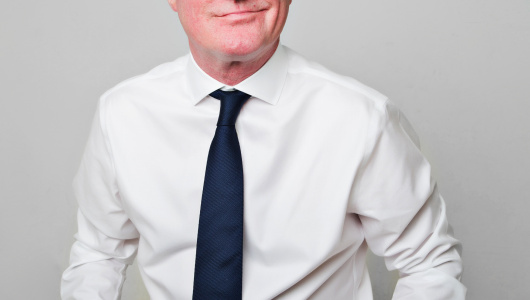
There’s a fair bit of 90s nostalgia in the air. Although the world faces many uncertainties, there are good reasons for investors to take heart as we enter 2025.
Last autumn, millions of people applied for tickets to see the Oasis reunion concerts, which will take place this summer. As a result of the controversial ‘dynamic pricing’, which allowed prices to surge in response to demand, some tickets went for as much as £355.
Almost 30 years ago, in August 1996, some 250,000 people flocked to see Oasis play two nights at Knebworth. Those gig goers paid just £22.50 each (around £44 in today’s money) to attend the biggest outdoor concerts ever staged in Britain.
The next year, Tony Blair’s New Labour swept to power in a landslide, soundtracked by the D:REAM anthem Things Can Only Get Better. The Union Jack was everywhere – and the stock market soared.
As we enter 2025, the world doesn’t want for woes. But it’s possible to acknowledge that quite a lot is going right
Even sport got in on the action – from Britain hosting Euro 96 to the 1997 British and Irish Lions’ defeat of South Africa. Inevitably, the song bellowed out by Lions players and supporters in the bars of Cape Town and Durban was Oasis’s Wonderwall. All in all, mid-90s UK had a swagger in its step.
Might the Oasis reunion mark the return of some of that confidence? As we enter 2025, the world doesn’t want for woes. But, at the same time, it’s possible to acknowledge that quite a lot is going right.
Wonderwall?
Despite 2024 being a year of political uncertainty, low growth in many economies and open war in Ukraine and the Middle East, the world’s equity markets did, in aggregate, deliver double-digit returns – climbing the proverbial “wall of worry”.
Why? Well, investing is a forward-looking business. Investors have looked through political and geopolitical uncertainty to focus on falling inflation and the cuts to interest rates that it allows.
Investors also thrive on certainty. People hold off making important decisions when they don’t have much certainty over the future, which means that consumers, businesses and investors all tend to be careful about how they deploy their cash in uncertain times.
But as 2024 progressed, we achieved greater clarity – and, potentially, greater stability
In this light, it’s worth remembering that 2024 was a year of remarkable political uncertainty, with an unprecedented number of elections around the world. But as the year progressed, we achieved greater clarity – and, potentially, greater stability.
The fact that the S&P 500 hit record highs in the wake of Donald Trump’s election victory probably says more about the removal of the year’s biggest uncertainty than the Republican policy package itself.
At the same time, financial conditions looked more positive. Although it has oscillated in recent months, inflation is on a downward trend and interest rates are coming down too.
This combination of lower rates, ebbing inflation and greater certainty could lead to very attractive real rates of return – drawing more investors and their capital from the sidelines as the new year unfolds.
What’s the story?
However, for this to transpire, the key ingredient is confidence. As professional investors, we scrutinise surveys of business and consumer confidence. But we shouldn’t allow ourselves to become slaves to the data. We should also be alert to any cultural and sociological indicators that point to the return of animal spirits.
As professional investors, we scrutinise surveys of business and consumer confidence. But we shouldn’t allow ourselves to become slaves to the data
It’s also important to simply look around. What’s in the air? What’s bringing people together? What are they wearing? These zeitgeist indicators can be very useful to investors across all markets.
Married with children
Cultural events provide another means of gauging confidence – which brings us back to Oasis.
The people who were at Knebworth in 1996 are now in their late-40s and 50s. The 1.3-million-strong audience for the 2025 reunion concerts will be largely made up of that generation: many in the middle-income bracket that’s been hit hard by the cost-of-living crisis. But their financial prospects may be starting to look a little bit brighter.
2025’s middle-aged, squeezed-middle concertgoers are likely to enjoy a bit more disposable income
Their kids are growing up and will be out of the house in the next few years. Wages have been growing faster than inflation in recent months, leaving them with more cash in their pockets. Although there was some fresh uncertainty over the Autumn Budget, we have also seen a recent improvement in the UK’s consumer confidence index.
When those factors are combined with falling interest and mortgage rates, 2025’s middle-aged, squeezed-middle concertgoers are likely to enjoy a bit more disposable income.
At the same time, this generation has retirement on the horizon, albeit still a long way off. More income and fewer responsibilities as children leave the nest could lead to more saving and investment, as well as more spending.
The masterplan
We might draw some further parallels with the 1990s too. Then, as now, we were on the cusp of a technological revolution. While Britpop looked back to the 1960s, investors were looking forward to advances in the defining technology of the new century: the internet.
As Oasis, Blur and the rest began to lose ground to musicians as diverse as Radiohead and the Spice Girls, the dotcom bubble was already underway. Its bursting in early 2000 drew a definitive line under the exuberance of the 1990s.
As with dotcom bubble, the useful technologies that emerge when the froth subsides are likely to prove transformative
Today, of course, the technology that’s driven some tech stocks to new heights is artificial intelligence (AI). As with the internet, some optimism is likely to have been misplaced. But as with dotcom bubble, the useful, applicable technologies that emerge when the froth subsides are likely to prove transformative. Whether or not we get some big bangs along the way, there’s likely to be plenty to keep investors excited in 2025.
So, as 50-somethings look forward to a summer of 90s nostalgia, we shouldn’t be surprised to see an uptick in confidence – and, as more clement financial conditions take hold, in markets. Investors should be ready to roll with it.
Michael Browne is chief investment officer of Martin Currie














Ok you might have reasons to be cheerful, however here goes an alternative view:
Labour have proved what they are-a shambles
Borrowing cost through the roof
Inflation on the rise
Mortgage rates up
Uncontrolled asylum seekers. This costs millions
Grooming gangs , swept under the carpet!!!!!!
Employers NI gone up (which somehow is supposed to create jobs)
And we thought the Tories were bad